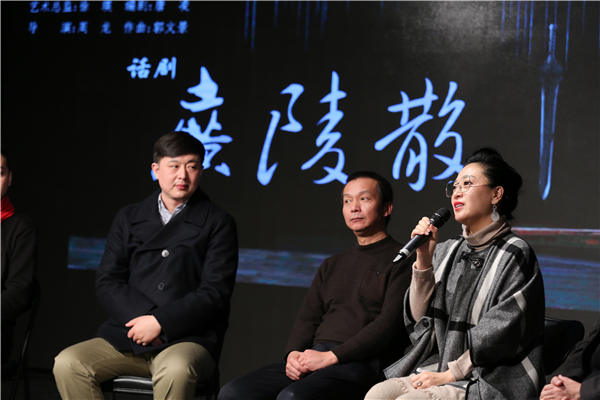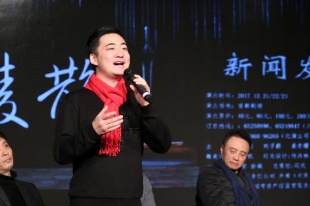New show set to bring legendary guqin piece to life


"The reason why I am so fascinated with the story is because it's a Chinese story and is rarely told onstage," says Xu.
"Those great scholars, musicians and poets, like Ji, represent traditional Chinese culture." Also, instead of inviting drama actors, Xu had Peking Opera artists onstage, including Li Jian, a veteran Peking Opera actor, who teaches at the middle school affiliated to the National Academy of Chinese Theater Arts; Jiang Yishan, an actress from the Peking Opera Theater Company of Beijing; and Liu Dake, an actor from the National Peking Opera Company.
Xu says the show is an experiment of combing these two art forms.
"Peking Opera has about 200 years of history, which enables the art form to be complete and sophisticated. But Chinese theater turns only 110 this year. So, comparing it with Peking Opera is not fair," says Xu.
"But by bringing these two art forms together, we can explore the potential of Chinese theater."
Speaking about the challenges for the performers, he says: "The actors have to change their usual way of singing and speaking as Peking Opera artists. They have to put their acting experience aside for this drama, which is not easy."
Meanwhile, Xu invited Chinese composer Guo Wenjing to write music for the drama.
For the show, Guo, who also composed for the NCPA opera, Rickshaw Boy, uses a live band onstage featuring traditional Chinese instruments, like the suona, zhong ruan and guqin.
"To me, Guanglingsan is more than a piece of music. It's about the spirit, which embodies traditional Chinese culture. From my score, music is visualized. You can see the tragedy of Ji, and the open-minded and unrestrained spirit of the Seven Sages of the Bamboo Grove," says Guo.





































